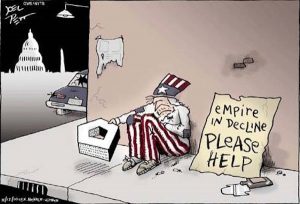Occasionally I reprint stories I wrote while working as a foreign correspondent for the Chicago Tribune. Here is one I wrote from Bangkok, Thailand in 1985. It examines the attitudes some Asian countries have toward Western (read “American”) culture—specifically, its music, its films, and what some consider its promiscuous lifestyle. Not much has changed since I filed this story thirty-six years ago.
BANGKOK, Thailand–Two months ago, at the peak of its popularity, the hit song “One Night in Bangkok” (see link at end of story) was banned by the government here. The reason: It was seen as a Western perversion of Thai culture.
Last week in an impassioned speech, Singapore’s deputy prime minister deplored the influx of “Western decadence” and warned his nation’s parliament that Asia was being “engulfed and overwhelmed by dangerous waves of undesirable Western influences.”
Even in Japan, which more than any other Asian nation has embraced and emulated Western culture, Japanese politicians and sociologists have lamented the erosion of traditional Japanese values under a “mushroom cloud of American music, movies, and adolescent mayhem.”
Other Asian nations–from South Korea, which has in the past banned American rock music, to Taiwan, which has refused to allow controversial American and European films and books to be circulated–have begun looking more critically at imported Western ideas, culture, and even fashion as their traditional societies are altered by high technology and cross-cultural communication.
Everything from declining family and human relations to rising divorce and crime rates is being blamed on unhealthy Western “permissiveness” in an increasingly shrill denunciation of the West.
Ironically, this is happening at a time when economic and cultural contact between Asia and the rest of the world has never been greater.
Critics of American and European influences are calling for a return to something they call “Asian values”–a catchall term that seems to encompass everything from Confucian ethics to an Asian version of the Boy Scout oath.
“Asian values,” explained Ong Teng Cheong, Singapore’s deputy prime minister, “are the ethical and moral concepts of Asians, the spirit of thriftiness and diligence.
“Moral and ethical values and proper human relations are the pillars of society,” Ong said. “Asian values emphasize the personal moral character and a person’s responsibility to society and the nation.”
Not everyone in Asia seems ready to accept that definition, however. Nor do they agree with governments that seem overly concerned about Western influences.
“Confucianism and other so-called Asian values essentially work against the trend toward democracy,” said Singapore parliamentarian Chiam See Tong. “People are taught not to speak up and to obey the orders of their superiors.
“One suspects that, by ‘Asian values,’ what is really meant is old conservative Chinese ideas of obedience to authority and not headlong opposition with the government, like in the West,” he added.
According to Vichai Prasertporn, a professor of political science at a Bangkok university, “What these governments that are crying for the return to Asian values are really saying is, ‘Sit down, shut up and follow orders.’
“Blaming the West for internal problems is nothing new in Asia,” he continued. “And certainly by banning a song about Bangkok’s nightlife, the government of Thailand is not going to ensure cultural purity. Just the opposite. ‘One Night in Bangkok’ is more popular than ever now.”
The chorus of complaints about the infusion of Western decadence and social permissiveness seems destined to achieve unprecedented decibel levels in the halls of Asian Parliaments. Everything from heavy metal and rap music to uninhibited displays of sexual activity in Hollywood films are under fire.
“Why is it that in almost every American film there must be the following elements: multiple and graphic sex scenes that verge on pornography, incessant and explicit homosexuality and lesbianism, graphic and extreme violence, and persistent drug use?” Prasertporn asked.
Some of the more xenophobic critics are even unhappy about the continued spread of American fast-food restaurants such as McDonald’s, Kentucky Fried Chicken, and Shakey’s Pizza.
“We are witnessing a current of ill wind of faddish trends pervading Western countries where the youth like to put on an unkempt and outlandish dress and romp and dance in the streets,” observed Singapore parliamentarian, Tang Guan Seng.
“They (Western teenagers) even take to drugs and unbridled carnal excesses,” Tang scolded. “In their minds, there is only individual freedom but not social or national interest.
“Furthermore,” Tang said, “we in Asia simply can’t accept the Western practice of addressing parents by their first names or the pitiful banishment of elderly parents in homes for the aged.”
In Japan, where Prime Minister Yasuhiro Nakasone has recently called for a revamping of the country’s educational system to emphasize more “Japanese values,” similar complaints about American influence are often heard.
Yet, say those who disagree with the denunciations of Western influence, countries such as Japan, Taiwan, and Singapore are undergoing dramatic changes because of their emergence as Asian superstates.
“The world is shrinking faster than ever before, and these countries are responsible for it with their manufacture and dissemination of technological gadgetry,” said Shintaro Ohu, a Tokyo businessman. “They are getting fat off this technology, yet at the same time are complaining about the changes this technology is bound to cause.”
Others agree and insist that Asian nations whose traditions are eroding in the high-speed computer age should accept the changes.
“The values and things worth saving will always be there,” said Prasertporn. “Big Macs will never replace spicy Thai shrimp soup, and I am sure Japanese teenagers who wear Boy George costumes will eventually come to see the classical beauty of a Japanese yukata (robe).”
Click on the link below to hear the song and see why it was banned in Bangkok.




